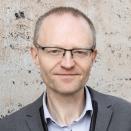Prospects for Building an Energy Union and the Sanctions against Russia Dominate Discussions about the EU’s Energy Security
Dr. Carsten Rolle from the Federation of German Industries said that the discussion about an energy union had come at the right time: the EU needed to define a strategy for creating a common energy market and should convince energy companies that such an integration would also be in their interest. Regionalization and flexible integration would provide a solution to many contradicting national interests in the energy sector: states willing to do so would need to start building this market and other member states could join at a later stage. In his opinion, this “multi-speed integration” in the European energy market was both possible and much-needed.
Dietmar Brockes – the Free Democratic Party’s speaker for economy, industry, and energy in North-Rhine Westphalia – described the crisis in Ukraine and the way in which it exposed the question of the EU’s energy security as an opportunity to advance the creation of a common energy market. He, too, advised beginning the energy sector’s liberalization and integration in the “core states” – the Benelux countries, France, and Germany. Finding a common position on energy issues, however, would be problematic even in such a small group, Brockes said. The multitude of conflicting national interests made it necessary for the European Commission to take a lead in the integration process.
Dr. Kirsten Westphal of the German Institute for International and Security Affairs (SWP) and Dr. Elkhan Nuriyev, currently a Humboldt Senior Fellow at SWP, concentrated on assessing the role of Russia in European energy security. Westphal stressed that since cheap Russian gas suited the market very well, incentives to diversify energy supplies were limited. However, following the introduction of European sanctions against Russia, energy relations had become highly securitized, closing one possible channel to rebuild trust with Moscow. Westphal said that lifting the sanctions would turn out to be a difficult task for European policy makers. She also argued that there were no feasible alternatives to energy imports from Russia.
Nuriyev described Russia as a “good, if not the best” energy supplier for Europe, since alternatives were either unreliable or too costly. However, he argued that seeking a dialogue with Russia was not only a matter of market reality, but also of geopolitics: in order to secure its relations with Moscow, the EU would need to come to terms with the fact that Russia pursues interests different from its own. As a solution to current energy disputes Nuriyev suggested an international institutional framework for energy; this would integrate interests of both energy suppliers and importers, establish a level playing field, and lower risks for all actors.
Dr. Sylke Tempel, editor-in-chief of Internationale Politik, chaired the discussion.
